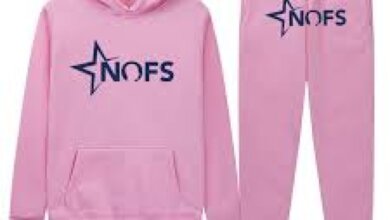Virat Kohli, India’s cricketing icon and global sports sensation, is more than just a run-machine on the field—he’s also a canvas of stories, spirituality, and strength. His body art is a roadmap of his personal evolution, beliefs, values, and milestones. Every tattoo he bears is not just a design, but a chapter of his life—a deeply personal message inked in permanence. For fans and tattoo enthusiasts alike, Kohli’s tattoos are inspiring not only for their aesthetics but for the life lessons they quietly teach.
In collaboration with 3 Cube Tattoo, one of the most renowned names in body art and expression, let’s delve into the world of Virat Kohli’s tattoos and uncover the powerful life lessons they offer.
The God’s Eye – Embracing a Higher Power
One of Virat Kohli’s most prominent tattoos is the God’s Eye, located on his shoulder. This mystical symbol represents the divine’s watchful gaze over everything and everyone. For Kohli, it signifies his faith in a higher power and the belief that he is always being guided and protected.
Life Lesson:
Even the strongest individuals seek strength beyond themselves. In the face of pressure, chaos, or uncertainty, surrendering to a higher force can provide clarity, purpose, and peace.
Lord Shiva Tattoo – The Power of Stillness
Kohli’s tattoo of Lord Shiva, meditating in a yogic pose on Mount Kailash, is a spiritual reflection of his mindset. Shiva represents destruction, transformation, and inner calm—elements crucial to both cricket and life.
Life Lesson:
To succeed in the outer world, one must conquer the inner world. Practicing calmness, embracing change, and being mentally resilient are the keys to overcoming challenges and evolving as a person.
Scorpio Zodiac – Embracing One’s Identity
Born on November 5, Virat Kohli has the Scorpio zodiac sign tattooed on his right upper arm. Scorpios are known for their passion, intensity, and determination—all qualities that perfectly align with Kohli’s personality.
Life Lesson:
Your identity is your strength. Understanding and accepting who you are—the good, the bad, and everything in between—is essential for authenticity and growth.
Japanese Samurai – Strength in Discipline
One of the lesser-known but most powerful tattoos Virat sports is of a Japanese Samurai warrior with a raised sword. It reflects the Bushido code, emphasizing loyalty, honor, and discipline.
Life Lesson:
True greatness lies not in power, but in discipline. A well-lived life requires a strong moral compass, focus, and an unwavering dedication to one’s values and craft.
Parents’ Names – Staying Grounded
Kohli has tattooed the names of his mother (Saroj) and father (Prem) on his arms. It’s a simple yet profound tribute to the people who shaped his journey.
Life Lesson:
Never forget your roots. Amidst success and stardom, grounding yourself in love, gratitude, and humility keeps you human and real.
Tribal Tattoos – A Journey of Growth
Virat also has tribal art tattoos symbolizing strength, aggression, and spiritual growth. These were among his first tattoos and reflect his raw energy as a young cricketer.
Life Lesson:
Growth is a journey. Who you were yesterday doesn’t define who you’ll be tomorrow. Allow yourself the freedom to evolve and embrace your journey, no matter how it begins.
175 & 269 – Milestones of Memory
The numbers 175 and 269 are tattooed on Kohli’s body, marking significant milestones in his cricketing career. These represent his U-19 and Test cricket cap numbers respectively.
Life Lesson:
Celebrate your milestones. Big or small, every achievement is a step forward. Mark your journey and honor the moments that define your path.
Om Symbol – The Sound of the Universe
Kohli’s Om tattoo represents the sacred sound and spiritual icon in Indian religions. It resonates with inner peace and universal consciousness.
Life Lesson:
In a noisy world, silence is power. Finding your center, your balance, and your inner peace helps you handle external chaos with grace.
Why Virat’s Ink Resonates
What makes Virat Kohli’s tattoos so impactful is not just their artistry but the deeply personal stories they carry. Each tattoo is a philosophical reflection—a reminder of where he came from, what he believes in, and who he continues to become.
As 3 Cube Tattoo emphasizes, body art should go beyond beauty. It should narrate your soul’s story. Kohli’s tattoos are a perfect example of this belief—art that’s meaningful, enduring, and transformative.
Inspired by Virat? Here’s What You Can Do
If Virat Kohli’s tattoos have inspired you, consider what lessons or values shape your journey. Whether it’s strength, faith, family, or transformation, let your tattoo be more than skin-deep. At 3 Cube Tattoo, expert artists collaborate with you to turn your story into art that’s bold, authentic, and deeply personal—just like Kohli’s.
Final Thoughts
Virat Kohli’s tattoos are not just about aesthetics or trend—they are spiritual symbols, emotional memories, and philosophical truths. Each one has a story to tell and a lesson to teach. From discipline and identity to faith and gratitude, Kohli’s body is a canvas of his life’s teachings.




